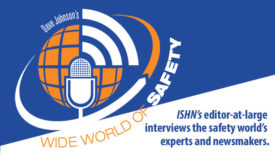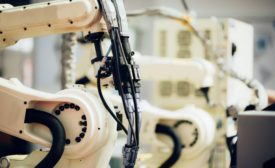Home » artificial intelligence
Articles Tagged with ''artificial intelligence''
Safety requires enabling robots and employees to work in harmony
Upkeep is only one part of industrial robotic maintenance
December 1, 2022
Become a Leader in Safety Culture
Build your knowledge with ISHN, covering key safety, health and industrial hygiene news, products, and trends.
JOIN TODAYCopyright ©2025. All Rights Reserved BNP Media.
Design, CMS, Hosting & Web Development :: ePublishing













